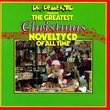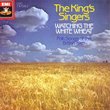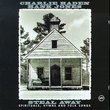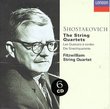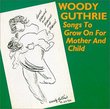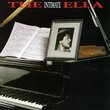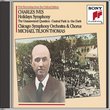| All Artists: The King's Singers, The Consorte of Musicke, various/anonymous/traditional, Anthony Rooley Title: Madrigal History Tour Members Wishing: 0 Total Copies: 0 Label: EMI Classics Release Date: 5/4/2004 Genres: Dance & Electronic, Special Interest, Pop, Classical Styles: Vocal Pop, Opera & Classical Vocal, Chamber Music, Historical Periods, Baroque (c.1600-1750), Instruments, Strings Number of Discs: 1 SwapaCD Credits: 1 UPC: 724358571424 |
Search - The King's Singers, The Consorte of Musicke, various/anonymous/traditional :: Madrigal History Tour
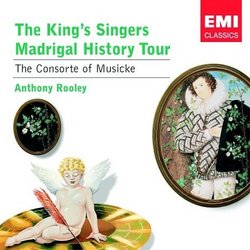 | The King's Singers, The Consorte of Musicke, various/anonymous/traditional Madrigal History Tour Genres: Dance & Electronic, Special Interest, Pop, Classical
|
Larger Image |
CD DetailsSimilarly Requested CDs
|
CD ReviewsA voice teacher and early music fan George Peabody | Planet Earth | 01/25/2008 (4 out of 5 stars) "THE KING'S SINGERS: SOMETIMES HOT, SOMETIMES COLD! The madrigal form, as it developed throughout Europe, is chronicled with precision and great attention to detail by England's King's Singers. From its original appearance in Italy in the 1530's, the form-characterized by polyphonic texture, in the secular equivalent of the motet-was popular in England, Germany, Spain and France. Madrigals were the music of the people; they were written in the vernacular, expressed common themes of love and desire, and were often accompanied by dancing. The liner notes go into some detail about the history, etc. and provide the words of each song. There are seven from Italy, seven from England ( I think they sing these best of all.) eight from France, six from Spain, and six from Germany (These I'm not fond of, but it could be that the Singers do not adapt to these as well.) Most of the madrigals are quite short, but the two well-known of relatively large proportion are included on this line-up: 'La Bamba' by Flecha (takes an impressionistic approach to the Christmas story), and 'La guerre' (includes vocal imitations of battle noises) by Janequin. On this disc there are six singers: two countertenors (Jeremy Jackman-Alastair Hume); one tenor (Bill Ives); two baritones (Anthony Holt-Simon Carrington) and one bass (Colin Mason). I think that their ever-changing personnel has improved in the last 10 years, especially in the countertenor line-up. To my listening ears Jeremy Jackman has a thin, puny and nondescript tone quality that is totally bland and undramatic. At that time I heard this group in concert with Jackman and prior to that I felt that perhaps the recording sound was causing some of this 'thinness' of quality, but not true; it was the same in a 'live' concert situation. His rendition of the usually impressive 'Silver Swan' by Gibbons is a big disappointment. And it puzzles me because in 1983 in England there were some excellent countertenors available (Michael Chance being one of them). So actually, although the selection is unquestionably outstanding, the singing is NOT.! It's not bad singing, just not very exciting! (Take note that the other Disc listed on this website is the SAME RECORDING). Recorded in 1983, the precision and disipline of the group shows through, but however technically accomplished they are, Anthony Rooley's Consort of Musicke provides an appropriate and agreeable, as well as KNOWLEDGEABLE accompaniment. In fact, the 'Singers' give Rooley some of the credit for their ability to perform this music correctly within its framework." Delightful! "Gimpy" Peach Johnson | 12/30/2007 (4 out of 5 stars) "For well under ten bucks, you can't do much better than this wonderful set of late 16th- and early 17th-century madrigals. The King's Singers have chosen a varied program of madrigals from Italy, England, France, Spain and German, representing nearly all of the "great" composers of the genre (Willaert, Morely, Dowland, Arcadelt, etc.). The performances are lively and well-recorded, with just the right amount of natural-sounding reverb. The voices blend beautifully. The packaging is colorful and attractive and liner notes offer a little historical background on the music and the musicians as well. I'm a little disappointed that the Consort of Musicke has been added to provide instrumental accompaniment on some tracks. Original sources for this music rarely specify what if any instrumental accompaniment should be added. 16th- and 17th-century performers very likely added instruments when singing madrigals (so doing so isn't "wrong"), but many of these pieces sound so lovely "acapella" that I find the addition of pipes, flutes, and percussion detracting. One of my favorite madrigals, Thomas Morley's sprightly "Now Is The Month Of Maying" has been recorded by the King's Singers on another CD ("All At Once Well Met") purely acapella--and I find that recording MUCH more satisfying and enjoyable than the one included here, where flutes and drums have been added without contributing anything to the music. Still, on the whole, this is an excellent recording and the CD packs a generous 74 minutes of music. I'm quite pleased." Ever wondered what was before Bach, Lully, or Palestrina? Josh P. | 04/28/2007 (5 out of 5 stars) "During the days of the Renaissance, the madrigal was one
of the most popular musical forms and outputs. The King's Singers, a modern-day all male vocal group, demonstrate the authentic sound of which these 34 chosen madrigals may have been performed. In the Renaissance, in place of sopranos and altos, there were countertenors (men who sang falsetto in a feminine range). That's what these guys do; just listen to the first few and you'll automatically be transported back to this magical and sort of other-worldly time. If you've been to Renaissance fairs, it will make you think of those, too. The King's Singers offer 34 well-chosen madrigals from composers like John Dowland, Hans Leo Hassler, Clement Jannequin and some composers who wished to remain anonymous. They are grouped by the different languages to show that the madrigal wasn't just the rage in Italy where it had originated but at various other places all over Europe, the hub of the music world. The Italian ones come first, then in English, French, Spanish and German. The best one in the set is "La Guerre" which runs 6 minutes, and is an incredible vocal showpiece. It's even very funny at times. If you want to hear exactly how Renaissance madrigals sound, this is the real deal." |

 Track Listings (34) - Disc #1
Track Listings (34) - Disc #1